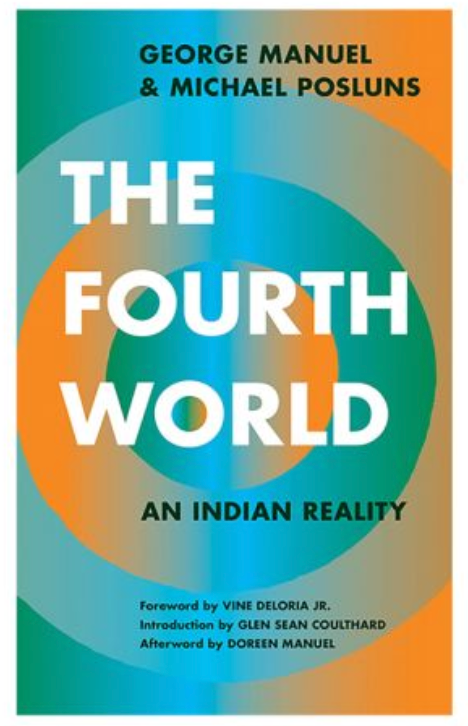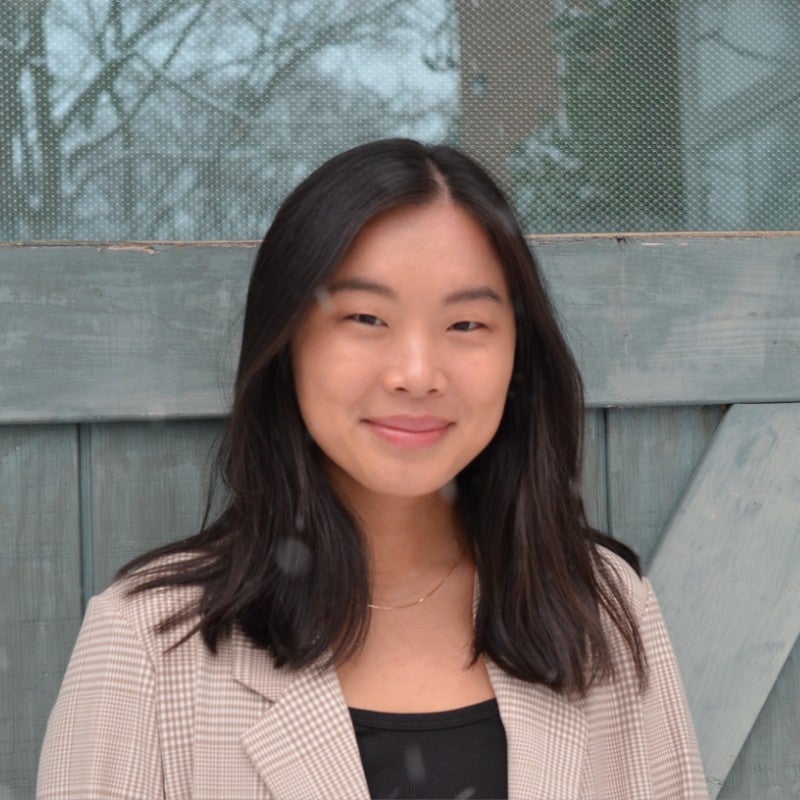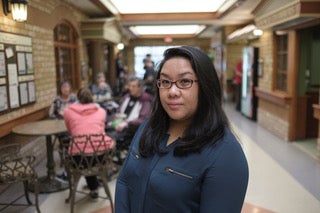
Welcome back to our sixth issue of The Catalyst Anti-Racism newsletter.
Each month, we have a different President’s Anti-Racism Taskforce (PART) working group co-chair introduce the newsletter. We hope this will give you a deeper understanding of the dedicated people behind our work.
This month, our message comes from Kalpita Gaitonde, co-chair of the Health and Mental Health working group.
In this issue:
- Message from the Chair
- Anti-racism across campus
- Staff feature
- Department feature
- Research spotlight
- Working group update
- Upcoming events
Message from the Chair
Kalpita Gaitonde, co-chair of the Health and Mental Health working group

Traditionally, October has been a special month for mental health awareness on campus. The objective of World Mental Health Day, celebrated on October 10, is to raise awareness of mental health issues around the world and to mobilize efforts in support of mental health. This objective also aligns with the vision of Thrive, a series of events focused on building positive mental health for University of Waterloo students, faculty, and staff. UWaterloo is mobilizing efforts to support mental health on campus through a commitment to achieving the Thrive goals: enhancing mental health literacy by understanding how to obtain and maintain positive mental health for oneself and others, building healthy habits & self-care skills, and fostering a supportive and inclusive community.
Thrive’s tagline is building positive mental health for all. For many members of racialized groups, significant barriers affect their ability to build and maintain positive mental health. From a lack of awareness and recognition of mental health issues, social stigma, a reluctance to share personal problems and the inability to afford mental health services, access to mental health services remains inequitable for many. Other determinants such as relatively lower income and education levels, higher unemployment levels, precarious work conditions, and numerous others, also tend to exacerbate these inequities.
As a Health Promotion and Evaluation specialist and co-chair of the Health and Mental Health working group, let me take this opportunity to invite you to participate in Thrive month activities, October 18 to November 12, 2021. I would like to highlight “Let’s Talk About Mental Healthat the Intersections,” a virtual panel discussion, organized by PART in collaboration with Thrive, on Thursday, October 21 from 1:00 pm, to 2:30 pm. If you would like to participate in this event, please register here. You can also read more about “Let’s Talk About Mental Healthat the Intersections” in the next section of the newsletter.
Good mental health and wellbeing are important for all of us. Let us, therefore, act together to address mental health issues and promote equitable access to racialized groups to ensure that members of our community are able to enjoy optimal mental health.
Learn more about mental health supports here.

THE CATALYST
Subscribe now to receive each issue of this newsletter direct to your inbox
Anti-racism across campus
University responds to Human Rights, Equity and Inclusion review
A message from Vivek Goel, president and vice-chancellor, and James W.E. Rush, vice-president, academic & provost.
(Originally published in the Daily Bulletin on Friday, October 15, 2021)
Last August, the University engaged a team of external experts to start a formal review of the Office of Human Rights, Equity and Inclusion at Waterloo. We are pleased to share that we have received the review team’s final report and we are moving ahead with plans to implement their recommendations.
We are extremely grateful to the review team for their comprehensive consultations, generous time and thoughtful recommendations that will help us strengthen our approach to supports for Indigenous reconciliation, anti-racism, equity, diversity, and inclusion here at Waterloo.
Our response to this review will begin with significant investment and a realignment of our structure, resources and mandates to ensure that the work of Indigenous reconciliation, anti-racism, equity, diversity, and inclusion here clearly serves the needs of our students, faculty, staff and community. To be clear, the responses we are announcing today come as we continue to commit to the important work of consultation and engagement across our campus and beyond.
Creating new organizations with a mandate to influence our institution
To start, we are acting on recommendations from the review team to create two new organizational units led by Associate Vice-Presidents (AVPs) that will report to the Vice-President, Academic & Provost.
The Office of Indigenous Relations will be led by Jean Becker, who will take on the new title of AVP, Indigenous Relations. For the last year, Becker has acted as the Interim Associate Vice-President of Human Rights, Equity and Inclusion. We are both extremely grateful to Jean for taking on this role so soon after joining the University in 2020.
Given the enormous importance and urgency in progressing our work to reconcile with the Indigenous peoples of our community and decolonize our university, we are fortunate to work with Jean and her team to understand and implement the substantive recommendations contained in the reports of the Truth and Reconciliation Commission of Canada. We also agree with the review panel’s remarks on the importance of the Waterloo Indigenous Student Centre at St. Paul’s University College and look forward to strengthening our relationship with them under Jean’s guidance.
Recognizing that we must also create a clear focus on anti-racism, the new Office of Equity, Diversity, Inclusion and anti-racism will be led by Dr. Christopher Taylor. We are pleased to appoint Dr. Taylor to the role of AVP, Equity, Diversity, Inclusion, and anti-Racism as a faculty term appointment ensuring that he can continue his scholarship when his term ends.
Dr. Taylor’s team will include the Equity Office, as well as the new Senior Manager, Anti-Racism Response. We know that anti-Black racism, colonization and all other forms of racism, are ongoing and impact people on our campus directly. Amongst other things, this new unit will have a renewed focus on serving our community by directing our equity, diversity, and inclusion strategy and focusing initially on anti-Black and anti-Indigenous racism.
Both AVPs and their teams will fulfil mandates to influence academic planning, strategic planning and decision-making at all levels of the University. We have committed additional resources over the last year into these areas and we look forward to working with the AVPs on further recommendations for resources in the future. The AVPs will engage and consult with the community in the further implementation of the HREI review recommendations. We are committed to reporting regularly to the community on the comprehensive resource commitments to the work associated with the entire portfolio.
You can expect further information on the Sexual Violence Prevention & Response Office and the Conflict Management & Human Rights Office in the near future as further discussions and processes occur. In the meantime, these units will continue to report to Jean Becker. Read the full article here.
PART and Thrive invite you to talk about mental health at the intersections

As the University of Waterloo gears up to celebrate Thrive Month, October 18 to November 12, 2021, the President’s Anti-racism Taskforce (PART), in collaboration with Thrive, has organized a virtual panel discussion called “Let’s Talk About Mental Healthat the Intersections,” on Thursday, October 21 from 1:00 pm, to 2:30 pm.
Panelists, Iqra Mohammad, student member of PART’s Health and Mental Health working group, Dinuka Gunaratne, manager, Career Education Strategy and Communications, Dr. Yewande Olamide, medical psychotherapist, and Farshid Sadatsharifi, PhD, operations manager, Acessibrand will focus on intersectionality (the convergence of two or more identities within a person) and its effects on health and wellbeing.
Hosted by Professor Bessma Momani, the virtual panel discussion will highlight how identities intersect and manifest themselves in the form of inequities and the effects these intersecting identities and inequities can have on health, mental health, and wellbeing.
Participants can also expect to learn about practices of self-care, strategies to heal trauma and engage in discussions on what more needs to be done to support individuals with intersecting identities and promote equity.
“Mental health can be a taboo topic among racialized groups,” said Anita Taylor, PhD, associate director, Research Strategic Initiatives, and member of the PART planning team. “Even more rare are conversations about the intersections of age, race, religion, gender identity, and sexual identity, among other identities, and how these identities affect mental health,” she explained.
“Providing objective safe spaces for discussions about mental issues plays a role in maintaining good mental health for everyone, not just for individuals living at the intersections. Let’s Talk Mental Health at the Intersections provides an opportunity for the campus community to engage in meaningful discussions that highlight how inequality can be addressed to ensure people are able to enjoy good mental health,” Taylor added.
“Mental health is a shared responsibility, said Grace Wong, Student Mental Health project coordinator, Thrive Core Committee co-chair, and member of PART’s Health and Mental Health working group.“Through Thrive, we aim to promote access to mental health services and share skills and resources that every member of Waterloo can use for themselves and to support others. With an increased focus on mental wellness through a holistic lens, we hope to enhance mental health literacy, build healthy habits and self-care skills, and foster an empathetic and inclusive community."
World Mental Health Day is on October 10 and the World Health Organization (WHO) is encouraging institutions to engage in activities that will raise awareness about mental health issues and mobilize efforts to support mental health, throughout the month of October and beyond.
If you would like to participate in Let’s Talk Mental Healthat the Intersections, please register here.
November Anti-racism book club

George Manuel (Secwepemc), a leader in the North American Indian movement at that time, with co-author journalist Michael Posluns, presents a rich historical document that traces the struggle for Indigenous survival as a nation, a culture, and a reality.
The authors shed light on alternatives for coexistence that would take place in the Fourth World - an alternative to the new world, the old world, and the Third World. Manuel was the first to develop this concept of the “fourth world” to describe the place occupied by Indigenous nations within colonial nation-states.
Sara Anderson, manager, Research Program Development and Partnerships, Indigenous Initiatives in the Office of Research will facilitate this book club. She looks forward to a spirited discussion about the genesis of the Indigenous rights movement, and the legacy of this work today
“I am honoured to facilitate a discussion on George Manuel’s vitally important book,” said Anderson. “Despite being first published over 40 years ago, The Fourth World is one of the foundational texts in the ongoing work of recognizing Indigenous rights, not just in Canada, but across the globe.”
Find registration information for PART’s anti-racism book club here.
Staff feature
Meet Olivia Fuju Taylor, PART research analyst

As a Research Analyst with PART, Olivia Fuju Taylor works with all five of PART’s working groups, where she conducts environmental scans to support the groups in making informed and data-driven anti-racism recommendations. One of the groups she works with is the Health and Mental Health working group, where she has conducted environmental scans, literature reviews, and research analysis for focus groups to determine how racialized students are disproportionately impacted by negative mental health experiences in comparison to their White counterparts.
“This work has been critical in fostering awareness surrounding mental health issues experienced by racialized students at UWaterloo and strategies to mobilize mental health resources to meet student’s needs,” she explained.
Taylor believes that to make health and mental health care more accessible for racialized students, there is a need for greater awareness and training opportunities for mental health professionals on trauma-informed care, intersectionality, and cultural competencies, as well as increased community engagement to foster relationships built on trust.
She also recommends increasing representation and diversity among mental health care professionals and staff as another solution to help empower racialized groups to empower individuals to achieve the best possible mental health.
“Members of racialized groups may feel safer seeking help from mental health practitioners with whom they share similar lived experiences,” Taylor said. “This can help to address mistrust, stigma, and a lack of safety, which are all significant barriers to accessing mental health services and supports.”
As members of the campus community engage in activities throughout the month of October, aimed at increasing awareness about mental health and well-being, the research analyst supports a continued collaborative, engaged approach, which includes acknowledging the concerns of racialized and disempowered groups and understanding that there isn’t a single solution to the problem.
Department feature
Recreation and Leisure Studies

Guided by the Charge, a collective statement put forth by Leisure Studies Associations around the world, Recreation and Leisure Studies surveyed faculty as a starting position to learn if and how faculty members were engaged in activities to facilitate anti-racist conversations, action, and advocacy, either in teaching, service, and research. The faculty collective agreed that change was needed from the outset and engaged in the process to learn about the way forward in making commitments that were impactful and sustainable.
“Together, we worked towards crafting commitment statements that would eventually serve as our collective consciousness and the foundation on which all our future anti-racism work would stand,” shared Professor Kimberly Lopez, chair of Recreation and Leisure Studies anti-racism faculty collective. “Over several meetings and consultations, our collective developed several commitments and responsibilities.”
Recreation and Leisure Studies has prioritized engaging co-op students in this work. In the Spring term of 2021, Marcus Pereira, a co-op student, was hired through PART funding to support the work of the Anti-racism Faculty Collective. Under the supervision of professor Lisbeth Berbary, he created the department’s anti-racism webpage. Pereira also completed environmental scans on honorarium policies and anti-racism commitments within higher education, in addition to developing a social media campaign to share key events, dates, people, readings, and any updates. Recreation and Leisure Studies has since adjusted honorarium policies and continues to make progress on ongoing work antiracism efforts.
Another co-op student, Karan Sahota commenced work in the Fall of 2021 with Professor Lopez to develop an infographic, which outlines current student reporting processes for filing anti-racism and discrimination complaints. Sahota is also supporting the social media strategy.
Asked the way forward for the Anti-racism Faculty Collective, Professor Lopez, looks forward to an institutional culture change, where anti-racism committees feel they are supported rather than the feeling that they are fighting for the change that is needed.
“It is clear to us that a campus infrastructure is required to combat the existing systemic racism through enhancing representation across all levels of the institution, education, policy, and support,” she explained. “The burden is disproportionately on racialized groups to consult and employ the change. We’re advocating for a framework, culture, and language where people who feel left out of anti-racism work feel they are able to contribute to the change. This work needs all of us to see systemic racism, hear about its impacts, and enact the change.”
Research spotlight
Margaret Mutumba, PhD candidate, Public Health Sciences

According to Mutumba, despite these alarming statistics, the push for population control in developing countries has overshadowed the needs of those who are unable to conceive. Even more disturbing, she noted, is that the burden of childlessness in families is carried by women, who experience stigma, ostracization, domestic violence, marital instability, and even suicide.
Margaret is originally from Uganda, which, she indicated, is the first country in East Africa to offer fertility services through its public health system. Her research looks at how fertility services have been implemented and the impact on access to affordable services for couples experiencing infertility. She hopes this study will provide a roadmap for other developing countries looking to uphold reproductive rights for all, by making fertility services more accessible.
“My research will benefit racialized groups in developed countries who often experience barriers to fertility care associated with medical bias and cost of care within health systems,” she explained.
Margaret Mutumba is also conducting research with Professor Elena Neiterman on the health and wellbeing of immigrant mothers of African descent in Canada. This study examines the experiences of women, who have been in Canada for less than two years and focuses on their perception of health and strategies used to stay healthy, as well as barriers experienced in maintaining health. The purpose of this study is to improve the understanding of how mothers of African descent in Canada perceive and experience health and wellbeing.
“As newcomers, immigrant women face challenges associated with social isolation and settlement that threaten their health and wellbeing,” she said. “Student parents face additional challenges due to the demands of academic work. These findings could contribute to the advancement of culturally sensitive wellness services at Waterloo and in the region.”
Margaret Mutumba is the Graduate Student Association (GSA) representative on PART’s Health and Mental Health working group, where her mandate is to advance the voices of racialized graduate students, concerning health and wellness needs. She further contributes to the working group by advocating for: trauma-informed wellness services, increasing racialized representation of health service providers, accommodating virtual and external community wellness supports, extending services to graduate student families, and decolonizing wellness content to offer more culturally diverse approaches.
“Racialized graduate students experience additional stressors associated with racial discrimination, diminishing representation and an inability (for various reasons) to access adequate wellness supports. My vision for the University of Waterloo is that PART becomes the catalyst for promoting systematic change and achieving a healthier and more equitable campus,” she said.
Working group update
From Gursharan Kahlon, co-chair of the Health and Mental Health working group

Several internal and external environmental scans were conducted to inform recommendations. These included an internal review of health, mental health, and wellness services available to students at the University and an external scan of information on services, supports and resources offered to Black, Indigenous, and/or racialized students at other universities, including Canada’s U15 and some Historical Black Colleges and Universities (HBCUs) in the United States. PART also conducted a scan of the services, resources, and supports offered in the Region of Waterloo tailored to racialized communities, which members of the University community could access.
Some thirteen consultations were held with various stakeholders within Campus Wellness, such as Health Services, Counselling Services, the Student Advisory Committee, and other units across the University (e.g., Accessibility Services, Co-op, Student Success Office).
Finally, a literature review was conducted to understand the health and mental health supports most needed by Black, Indigenous, and racialized students, and the challenges or barriers that they often face in accessing these services.
The research conducted yielded valuable insights. For example, racialized students experience various challenges throughout their academic journeys that impact their wellbeing, including, isolation, financial difficulties, cultural identity and biculturalism, discrimination, racial and intergenerational trauma. The findings also identified gaps in the supports, services, and resources offered at UWaterloo, as well as barriers to accessing these services.
Armed with these findings, the Health and Mental Health working group have made some preliminary recommendations, including partnering with regional healthcare and wellness providers that offer specialized services to members of racialized communities; expanding the University’s current Wellness Resources Database to include services on and off-campus; sharing information on local organizations/places where students can receive social assistance; and embedding mental health considerations into syllabi, course content, and teaching modalities.
The working group looks forward to the successful implementation of all of these recommendations, which will hopefully help to create more equitable access to health, mental health, and wellbeing services to the campus community.
Upcoming events
Avenue: The Black Undergraduate Law Internship Program
Avenueis a collaborative effort between Legal Leaders for Diversity and Inclusion (LLD) and the Law Firm Diversity and Inclusion Network (LFDIN) to implement a paid internship program focused on Black undergraduate students who may be interested in a legal career.
Avenue is designed to provide Black undergraduate students with real-world legal industry experience and an opportunity to build their resumes and create a professional network.
What will program participants gain from an internship through Avenue?
- 12-week paid internship at either a law firm or a company’s legal team
- Work experience designed to develop business acumen and an understanding of the practice of law
- Leadership development during the internship and networking opportunities
- Mentorship with a senior-level mentor within the law firm or company where the intern is placed
- Financial support through a grant (up to $3,000 CAD) to cover the cost of an LSAT preparation course or law school admission fees
Applications are due in late November 2021 for internships in summer 2022. Visit the Avenue website to learn about the program and how to apply: www.oba.org/avenue.